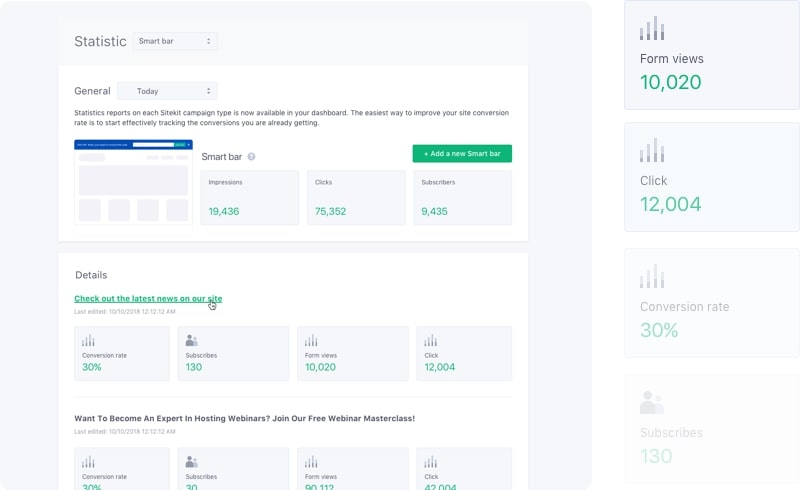Gamification
Customize your own games with SiteKit to collect emails from your customers and reward them with coupon codes.
Popup
Build awesome SiteKit popups to grab attention of your visitors and convert them into subscribers and social followers.
Smart bar
With SiteKit, you can create eye-catching header bars that stick on top of your website to collect emails and announce promotions.






























